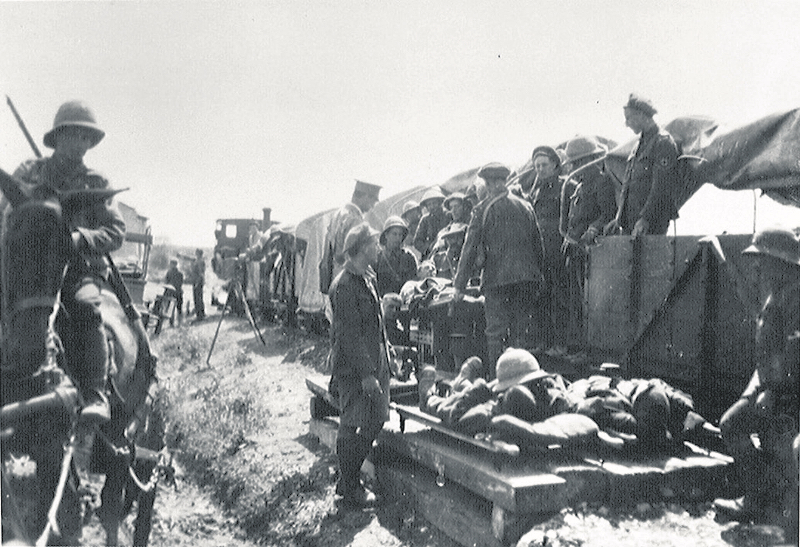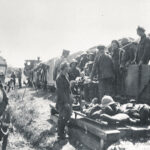Freezing earth, wind and the fire of war
Dublin People 21 Nov 2015
THE moving diaries of a Dublin-born captain who served during the First World War have been published online for the first time.
Captain Noel Drury’s story of the fatal weather conditions soldiers had to face at battle during the Balkans conflict were recently discovered and digitised on the National Army Museum’s online portal.
The personal journals belonging to the Irish soldier show that it wasn’t just the enemy that troops feared, but the punishing weather that could just as easily wreak disarray and death.
One hundred years after he fought with his battalion – the 6th Royal Dublin Fusiliers – Drury’s diaries have been published on the National Army Museum’s commemorative online portal, ‘First World War in Focus’ as part of their Soldiers’ Stories series.
They reveal how fighting across the mountainous terrain of the Balkans involved erratic and extreme weather that through the seasons changed from freezing cold to sweltering heat.
In late 1915, Austrian, German and Bulgarian forces invaded Serbia, forcing the Serbian army, an ally of Britain, to retreat. The Allies mobilised their forces at Salonika in Greece in an attempt to push the enemy back north. Captain Noel Drury was among these troops.
In October 1915, the allies encountered more than just enemy resistance when advancing north. Unprepared and inexperienced in dealing with the Balkan winter, freezing winds and heavy snow inflicted heavy casualties.
By the end of November, 1,600 British soldiers had been evacuated with many suffering from frostbite.
Drury’s journals vividly illustrate how this freezing hell caused physical trauma when he recounts the conditions on 28 November, the same morning that 150 men reported sick: “Our overcoats are frozen hard, and when some of the men tried to beat theirs…to lie down in, they split like matchwood.
“The men can hardly hold their rifles as their hands freeze to the cold metal. Everyone is falling and tumbling about in the most ludicrous way.”
Thick fog that hung heavy in the mountains also caused terrifying chaos during combat. Drury describes one of the most challenging battles: “A large mass of Bulgars was creeping up in the fog” with the soldiers left with only the “shouts and groans” of the Bulgarians to confirm they were shooting in the right direction. The Bulgarians withdrew to regroup, but later forced the Allies back.
As summer approached, the same soldiers who faced freezing conditions during winter had to deal with blistering heat and widespread pestilence and disease.
Eventually, the heat was so unbearable that both sides evacuated the Strumna valley “owing to prevalence of disease”, including malaria, which caused approximately 480,000 casualties during the war.
Drury was among them and was eventually sent by hospital ship back to Dublin to recover after he contracted the disease.
Noel Edmund Drury (1884-1975) was born a Dublin protestant and was the eldest son of John Girdwood Drury.
He lived in Dublin with his brother, Kenneth before volunteering for service following the outbreak of war.
After his recovery from malaria, Drury returned to active duty in September 1917 and served on the Western Front until the Armistice, leaving the army in 1921 as captain.
He died in December 1975, aged 91 at Foxrock and was buried at Deansgrange Cemetery in Dublin.
Read his story at First World War in Focus at www.nam.ac.uk/ww1
- Freezing earth, wind and the fire of war












